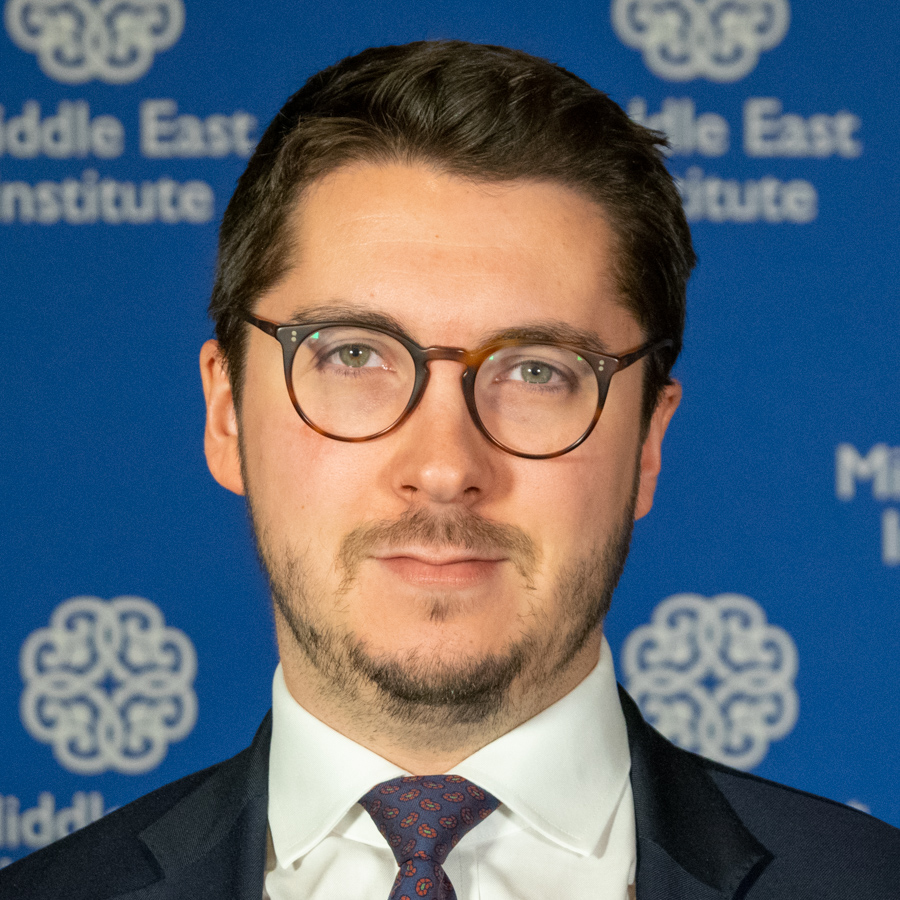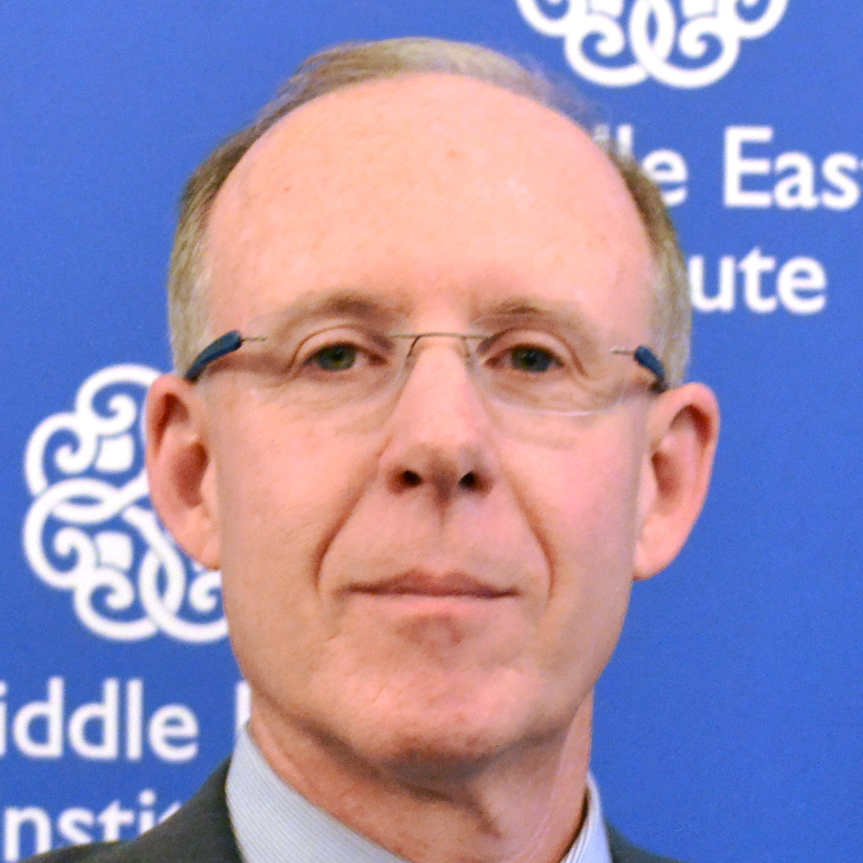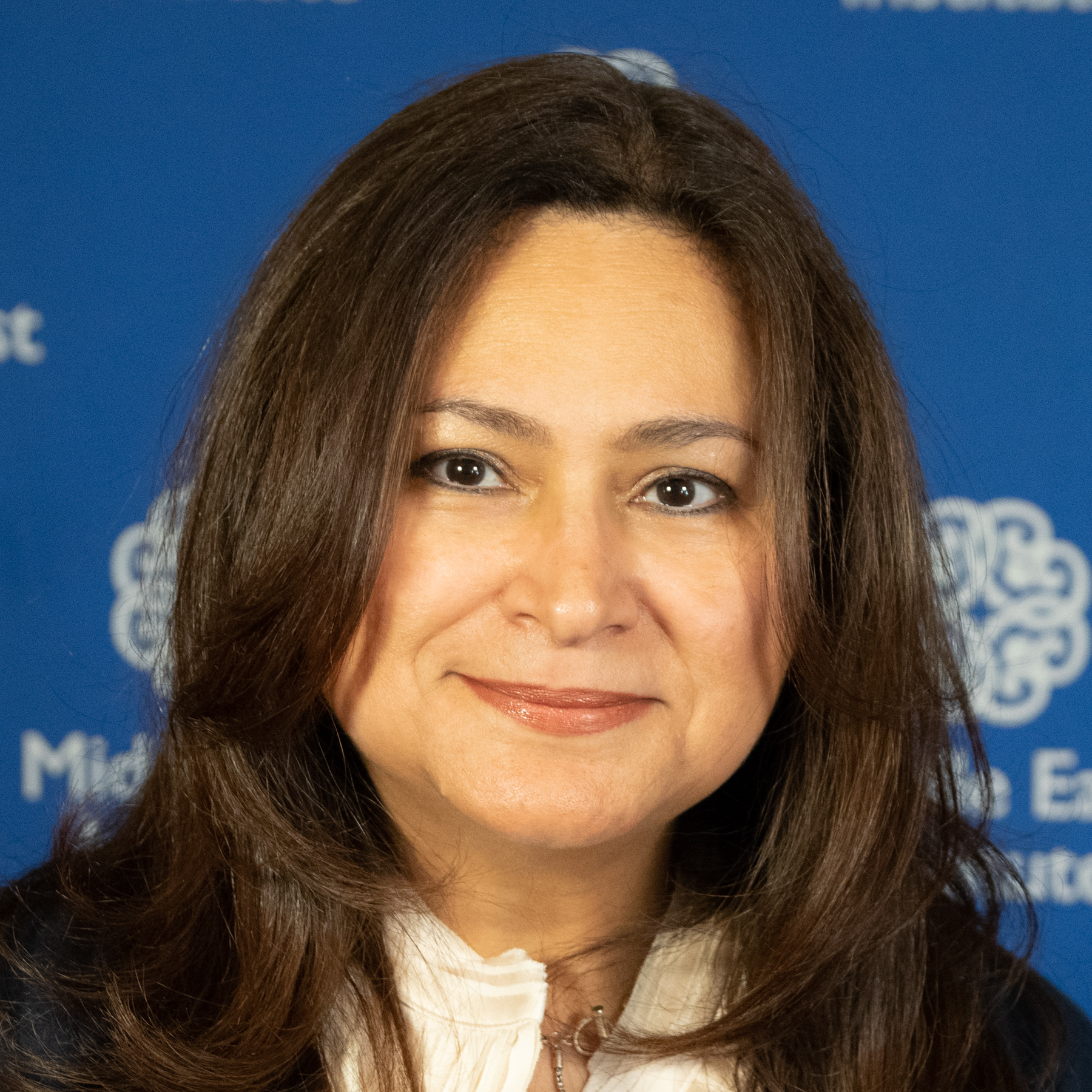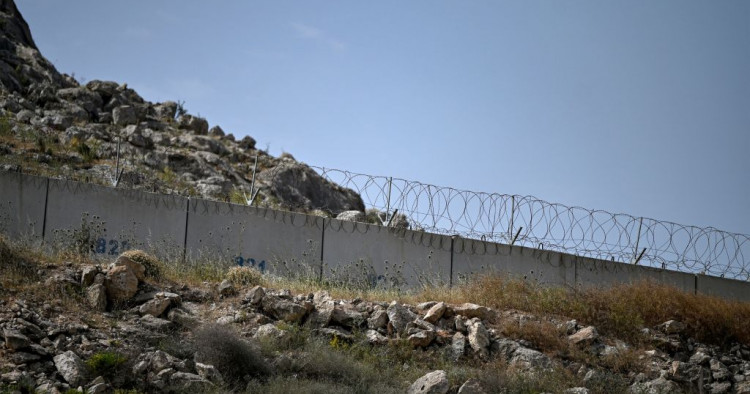Contents:
- Millions of Syrians at risk after Russia vetoes cross-border UN aid extension
- Will Kyiv or Kabul rules prevail after Biden’s trip to the Middle East?
- A clear need for American engagement as Biden heads to the Middle East
- Egypt looks to regional players to help resolve the long-running GERD dispute
Millions of Syrians at risk after Russia vetoes cross-border UN aid extension
Charles Lister
Senior Fellow, Director of Syria and Countering Terrorism & Extremism programs

Millions of Syrians woke up on Monday morning to a reality that for years had been a nightmare of their worst imaginations: After eight years, the United Nations’ mandate to provide enormous quantities of life-saving humanitarian aid into northern Syria had expired. At a crunch vote in the Security Council on Friday afternoon, Russia had utilized its veto to block a draft resolution that would have extended the existing mandate (under U.N. Security Council Resolution 2585) for a further 12 months.
Late on Monday, a possible agreement was said to have been reached that would allow for a six-month extension of cross-border access through a single crossing at Bab al-Hawa, with any further six-month extension dependent on a new U.N. Security Council vote in January 2023. A vote on this new text, reportedly conceded to by penholders Ireland and Norway, was due late on Monday or early on Tuesday morning. The proposal aligned closely with Russia’s early demands, as six-month extensions place the cross-border aid effort under enormous strain and limit bandwidth, as planning for the next round of negotiations begins almost as soon as the last one ends. Such a significant concession speaks volumes about the power of Russia’s willingness to veto, and the international community’s vulnerability to it.
The issue at stake is of enormous consequence. Under its previous mandate, the U.N. had provided approximately 1,000 trucks of aid to northwestern Syria’s civilian population of 4.5 million — 80% of whom are women and children, and 70% of whom are displaced — every month. Of that population, 90% are reliant on humanitarian aid. Northwestern Syria already represents the most acute humanitarian crisis in the world, and U.N. bodies have warned of a “humanitarian catastrophe” if cross-border aid was severed irreversibly. Within two weeks, at least 70% of the region’s food needs would vanish.
According to the World Food Programme (WFP), Russia’s illegal invasion of Ukraine has been the primary driver behind a 60% increase in food costs inside Syria, so this latest potential extension of Moscow’s “siege and starve” strategy is especially heinous. Even across Syria writ-large, the humanitarian need has never been greater, with 14.6 million civilians now entirely dependent on aid, and 97% of the population subsisting below the poverty line. Food insecurity has shot up by 51% in three years; rising global food costs have forced the WFP to cut the size of its food baskets; and despite record-level donor pledges to the aid mission, the $6.7 billion raised is less than half of the total required to meet the needs.
Russian diplomats have long pushed for cross-line aid provided via Damascus to become the dominant mode of assistance, but the Assad regime’s extensive interference, diversion, and blocking of aid delivery has made that a virtually meaningless proposition. In the past 12 months, the cross-line aid mission has provided 50-60 trucks of aid to northwestern Syria, whereas cross-border has provided 11,000-12,000. As aid workers have long insisted, there is simply no comparison to be made.
Since January 2020, Russia has utilized its U.N. veto to methodically sever cross-border aid access into Syria, forcing the closure of two of four access points in January 2020 and a third in July 2020. The final crossing point at Bab al-Hawa, via Turkey, has long been considered differently, given Russia’s relationship with the Turkish government, for whom aid supply into northwestern Syria is an issue of existential national security importance. There has always therefore been some hope that a deal may be found to keep aid flowing.
If not, then a tightly guarded “Plan B” cross-border mission conducted without a U.N. mandate would need to be rapidly initiated. Multilateral planning for this Plan B effort has been ongoing for months, led from the front by the United Kingdom, France, Germany, Turkey, and the United States. Such an international aid mission would seek to build upon much of the infrastructure, logistics, and mechanisms developed under the U.N. mandate, but concerns remain around overlapping legalities — with some U.N. lawyers insisting at least six months of legal wrangling would be necessary for the effort to reach its full capacity. Even then, it would never match what the U.N.-led effort was capable of prior to July 10, 2022.
Follow on Twitter: @Charles_Lister
Will Kyiv or Kabul rules prevail after Biden’s trip to the Middle East?
Ross Harrison
Senior Fellow and Director of Research

As President Joe Biden heads to the Middle East, the contrast between his administration’s strong performance in the Ukraine crisis and last year’s messy withdrawal from Afghanistan should give him a tail wind. Observers should be on the lookout for which image of the United States prevails after his trip: “Kyiv rules,” under which the U.S. posture is clear and strategic, or “Kabul rules,” under which the U.S. appears weak and feckless.
The withdrawal from Afghanistan last September didn’t start the damage to the U.S. brand in the Middle East, but it certainly was the coup de grace in indicating that the region had gone from the security provided by the Carter Doctrine to a “self-help” system in which Washington is largely inattentive.
This stood in contrast to Russia’s brand in the Middle East. Vladimir Putin was sought out by all actors in the region, including Iran, Saudi Arabia, and Israel. Particularly compared with Donald Trump, Putin seemed like the “adult in the room,” steady and even statesman-like. Putin liked to say that while the United States broke things in the region, Russia was a stabilizing force, keeping Syria from falling to ISIS or al-Qaeda.
But now Putin no longer looks so steady, and his actions have been anything but stabilizing. Devastating food and energy crises loom, which could create further instability in the region. Also, Russia’s reputation as a military behemoth took a hit, with the failure of Russian equipment and lackluster battlefield performances.
The Biden team has a very specific agenda for the trip, including alleviating energy concerns, buttressing the Abraham Accords, dealing with Iran, and trying to tip our regional allies closer to the U.S. position on the Ukraine crisis.
But the issue that isn’t on the formal agenda but should be on the minds of the Biden team is the possibility to reshape the brand of the United States as a constructive actor in the Middle East, particularly in contrast to Russia. For Biden to put Kabul rules behind him and have Kyiv rules prevail requires a clear strategy that recognizes that the Ukraine crisis opens a strategic window for the United States to reset its relations with the region and reposition itself vis-à-vis Russia.
What does a clear and strong approach for Biden mean? First, Washington should convey that while U.S. relationships with both Riyadh and Jerusalem are rock solid in terms of having their backs, the U.S. will align itself with them on issues that serve its interests but not on ones that compromise the U.S. position. Our allies themselves are following this dictum. Israel and Saudi Arabia have deviated from the U.S. position on Iran, and now, Russia.
Second, it is important to convey that stability in the Middle East has primacy for the U.S. and that this stands in contrast to Russia’s destabilizing actions. Reticence by Israel and Saudi Arabia to tilt fully toward the U.S. position on Ukraine should not be interpreted as Russia’s standing in the region being secure. It is important to keep in mind that Russia’s post-Cold War influence in the Middle East started in 2015 when it came into Syria to support the Assad regime. While none of our allies backed Assad, Russia proved it was a force to be dealt with. Russia became a plausible actor, particularly in contrast to what was seen as an unsteady U.S., but not necessarily the preferred actor by leaders in the region. The Biden visit could be an inflection point where the U.S. is perceived by our allies and Iran as walking taller and steadier than Russia.
Third, Biden needs to walk a tightrope with respect to Iran. The visit should convey to the Iranians that the U.S. at least has options for a Plan B should the talks to revive the Joint Comprehensive Plan of Action fail, but also that there is a pathway toward diplomacy should a nuclear deal be struck. The Iranians are already nervous about an overdependence on Russia. A steadier hand by Biden could make them even more nervous and cause them to reconsider their assumptions about the will of the United States.
If the visit is used to send clear messages to Jerusalem, Riyadh, and Tehran, U.S. interests in the region could be buttressed. For the sake of the region, it is important that at the end of the trip Kyiv, and not Kabul, rules prevail.
A clear need for American engagement as Biden heads to the Middle East
Fatima Abo Alasrar
Non-Resident Scholar

In his recent op-ed in The Washington Post, President Joe Biden explained the significance of his upcoming visit to the Middle East and its importance for America's interests, focusing on the need for greater diplomacy and cooperation to prevent further conflicts and the rise of violent extremism. The president’s visit comes at a volatile time as the region and the world more broadly face issues ranging from the impact of Russia’s invasion of Ukraine and the hike in oil prices to Iran's lack of cooperation with the International Atomic Energy Agency and the uneasy peace in Gaza and Yemen.
Biden's stop in Jeddah is of particular significance given the tensions in U.S.-Saudi relations following the murder of Jamal Khashoggi and the war in Yemen, which Present Biden promised to end at the start of his presidency. Although it is difficult to imagine an immediate shift in policy and direction from either the U.S. or the Saudi side, there have been signs of trust-building over the past 18 months on multiple fronts, including Saudi support for a truce in Yemen that was primarily encouraged by the U.S. and Riyadh’s role in promoting more extensive cooperation among the Gulf countries.
The Biden administration has realized the need for this type of diplomatic engagement in the Middle East from the very start and was quick to appoint Ambassador Tim Lenderking as the U.S. special envoy to Yemen. Lenderking has proactively reached out to the United Nations and all conflict parties in Yemen and pushed for a diplomatic solution to end the conflict. The U.S. understanding of the regional threat posed by the Iran-backed Houthi militia has led to a realistic assessment of what can be achieved in Yemen. Although the Saudis have complied with the terms of the recent truce, the administration comprehends firsthand the difficulty of achieving peace with the militia.
However, this sense of cooperation that the Biden administration wants to promote must be clear and consistent. The Middle East desperately needs proactive American engagement and reliable strategic leadership, including a military alliance, which multiple U.S. administrations have failed to deliver in recent years. As the region's security is tested by various terrorist groups operating in Syria, Lebanon, and Yemen, the dangers persist and threaten the lives of millions of people. Iran's role in supporting militias across the region and its ballistic missile program are just as important for countries in the Middle East as its nuclear enrichment program. Diplomatic progress will unravel if the Biden administration persists in pursuing a deal with Iran without addressing these essential security concerns that threaten the region.
Follow on Twitter: @YemeniFatima
Egypt looks to regional players to help resolve the long-running GERD dispute
Mirette F. Mabrouk
Senior Fellow and Founding Director of the Egypt program

The third filling of the Grand Ethiopian Renaissance Dam (GERD) is just around the corner, slated for August. With a reservoir of approximately 74 billion cubic meters, roughly the capacity of the entire Nile Basin, the GERD is the continent’s largest hydropower dam and, for over a decade, the source of fruitless, and occasionally acrimonious, negotiations between Egypt, Ethiopia, and Sudan.
Egypt, which is dependent on the Nile for over 90% of its freshwater needs, from agriculture to drinking, is worried that, during droughts or water shortages, its access to water could be gravely affected. While Sudan also worries about water shortages — during the first filling of the dam, Sudanese water stations recorded a drop in levels and, according to a spokesperson for the Sudanese negotiating team, it hobbled water production plants in Khartoum for several days — it also has worries about security and the impact on its dams, including the Roseires and Merowe. Both countries are particularly worried since Ethiopia has a history of contentious transboundary resource relations, with hydropower dams that have caused significant harm in both Kenya and Somalia. To date, the biggest obstacle has been that Egypt and Sudan have both insisted on a legally binding agreement on the filling and operation of the dam (which, among other things, would lay out what would happen in times of water shortage) and Ethiopia has been equally insistent in its refusal to accept any binding agreement.
Addis Ababa was also insistent on refusing any international arbitration or involvement in the negotiations, except for an abortive U.S. attempt in 2019-20 when Ethiopia refused to sign a mediated agreement at the last moment. In 2020 the African Union (AU) started mediating the talks, although to date they have proven fruitless. Two attempts, first by Egypt and then by Sudan, to take the matter to the U.N. Security Council were equally unsuccessful.
There is, however, possibly a glimmer of hope on the horizon in the shape of shifting geostrategic alliances.
In late June, Saudi Arabia officially declared its full support for Egypt’s position on the GERD negotiations. A joint statement released following a meeting between Saudi Crown Prince Mohammed bin Salman and President Abdel-Fattah el-Sisi said, “With regard to the Renaissance Dam issue, the Saudi side affirmed its full support for Egypt’s water security being integral to the Arab water security and urged Ethiopia not to take any unilateral measures regarding the filling and operation of the Ethiopian Renaissance Dam.”
Saudi Arabia’s support is backed by something that neither Egypt nor Sudan have — leverage. The kingdom is the second largest investor in Ethiopia. It’s also keen to bolster relations with Egypt as a means of shoring up its own position as a regional lynchpin. Bin Salman’s visit to Egypt resulted in an influx of Saudi investment and an increase in anxiety among Egyptians at the potential for outsize political influence. Egypt, however, is keen on Gulf mediation in the matter as all other attempts have produced nothing but diplomatic heartburn. The Saudis are viewed by the Egyptians as more encouraging on the matter than the Emiratis. The UAE has significant influence in Ethiopia, having helped broker talks between the Ethiopian and the Tigrayan governments, but sources say that Egypt feels that the UAE has not been as supportive to Egypt on the matter as Egypt had hoped, despite a potential plan for investment in the three countries that is designed to bring them closer together. Possibly in an effort to leave no stone unturned, President Sisi received Qatari Emir Sheikh Tamim bin Hamad Al-Thani in Cairo right after Crown Prince Bin Salman, before flying to Oman and Bahrain.
At the end of the day, international mediation is most effective if it is backed by well-established international legal precedents or the appropriate incentives. Perhaps neither the AU nor the U.S. were appropriately positioned for either. It’s more likely that regional players, with the financial clout and interests to ensure a peaceful win-win scenario, might be best positioned to bring about an agreement in the face of political deadlock.
Follow on Twitter: @mmabrouk
Photo by OZAN KOSE/AFP via Getty Images
The Middle East Institute (MEI) is an independent, non-partisan, non-for-profit, educational organization. It does not engage in advocacy and its scholars’ opinions are their own. MEI welcomes financial donations, but retains sole editorial control over its work and its publications reflect only the authors’ views. For a listing of MEI donors, please click here.













